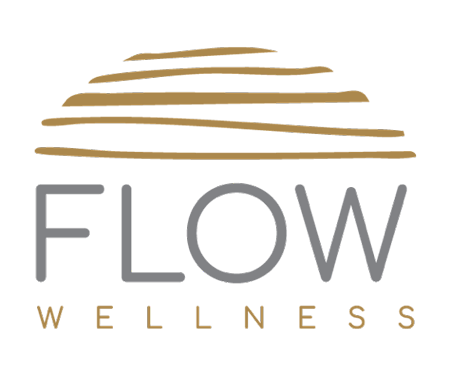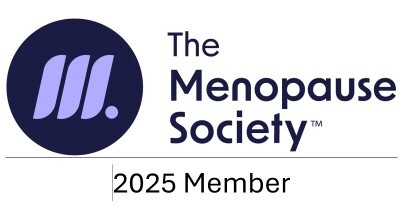The Role of Hormones in Women’s Health
At Flow Wellness, we believe that optimizing your hormone levels is one of the most powerful ways to restore energy, improve wellness, and support long-term health—especially as you age. This guide explains the four key sex hormones we evaluate in bioidentical hormone replacement therapy (BHRT): estradiol, progesterone, testosterone, and DHEA.
Each plays a vital role in your health and well-being. When levels are too low or too high, you may experience a wide range of symptoms. The good news? With the right testing and personalized treatment plan, we can restore balance and help you feel your best again.
Estradiol
The dominant estrogen during reproductive years
Estradiol is the primary estrogen used in BHRT for women. It’s essential for:
- Regulating menstrual cycles and reproductive health
- Maintaining vaginal moisture and elasticity
- Strengthening bones and preventing osteoporosis
- Supporting skin elasticity and collagen
- Aiding heart health (especially when started around menopause)
- Enhancing brain function and possibly lowering Alzheimer’s risk
- Regulating body temperature and reducing hot flashes
- Supporting mood, libido, metabolism, and deep sleep (especially REM sleep)
How it’s prescribed: Typically via transdermal creams or hormone pellets
Symptoms of Low Estradiol:
- Hot flashes, night sweats
- Vaginal dryness, painful intercourse
- Recurrent urinary tract infections
- Depression, irritability
- Poor memory or concentration
- Insomnia or light sleep
- Fatigue
- Joint pain, stiffness
- Weight gain, bone loss
- Dry or thinning skin, dry eyes/hair
Symptoms of High Estradiol:
- Heavy or irregular menstrual bleeding
- Breast tenderness or fibrocystic breasts
- Mood swings, irritability
- Bloating, water retention
- Worsening of fibroids
- Weight gain in hips/thighs
- Headaches, fatigue
Progesterone
The calming hormone
Progesterone is often the first hormone to decline in perimenopause. It helps:
- Balance the effects of estrogen
- Regulate menstrual cycles
- Promote restful sleep
- Reduce anxiety and inflammation
- Support bone density and early pregnancy
- Aid thyroid function and blood pressure
- Prevent estrogen dominance, which is linked to higher breast/uterine cancer risk
How it’s prescribed: Commonly orally or sublingually
Symptoms of Low Progesterone:
- Irregular or heavy cycles
- PMS: mood swings, breast tenderness
- Infertility or early pregnancy loss
- Anxiety, depression, insomnia
- Hot flashes, bloating
- Weight gain around the waist
- Low libido, fatigue
- Difficulty concentrating, bone loss
- Fibrocystic breasts or fibroids
Symptoms of High Progesterone:
- Drowsiness (especially with oral forms)
- Bloating or “full” feeling
- Nausea
- Lightheadedness, dizziness
- Weepiness or mild depression
- Acne or oily skin
- Symptoms of estrogen deficiency if overly dominant
Testosterone
The vitality and strength hormone
Though commonly associated with men, testosterone is essential for women, too. It supports:
- Lean muscle mass and bone strength
- Cognitive function, memory, and mood
- Energy, motivation, and overall well-being
- Libido and sexual satisfaction
- Insulin sensitivity and fat metabolism
- Vaginal tissue and collagen for youthful skin
How it’s prescribed: Most often transdermally
Symptoms of Low Testosterone:
- Low sex drive, difficulty with orgasm
- Fatigue, poor muscle tone
- Mood changes, depression, irritability
- Brain fog, memory issues
- Weight gain, decreased strength
- Thinning skin and hair
- Sleep disturbances, incontinence
Symptoms of High Testosterone:
- Acne or oily skin
- Unwanted facial or body hair (hirsutism)
- Scalp hair thinning
- Aggression or mood swings
- Irregular cycles
- Deepening of the voice
- Enlarged clitoris (rare with proper dosing)
- Symptoms resembling PCOS (in some women)
DHEA
The adrenal reserve hormone
Dehydroepiandrosterone (DHEA) is produced by your adrenal glands and acts as a precursor to testosterone and estrogen. It supports:
- Energy and mood stability
- Libido and stress resilience
- Bone density and muscle strength
- Immune function and healthy aging
- Skin vitality and blood sugar regulation
Think of DHEA as a backup generator—it kicks in when other hormones decline, especially under stress.
How it’s prescribed: Orally, sublingually, or via cream
Symptoms of Low DHEA:
- Fatigue, low mood, brain fog
- Decreased muscle tone
- Reduced libido and stress tolerance
- Bone thinning
- Dry skin and eyes
- Increased abdominal fat
- Poor memory or insulin resistance
Symptoms of High DHEA:
- Acne, oily skin
- Hirsutism (unwanted hair growth)
- Hair loss (androgenic pattern)
- Sleep disturbances or feeling “wired”
- Menstrual irregularities
- Voice deepening (rare)
Final Thoughts
Sex hormone imbalances can affect nearly every part of your body—from your mood and metabolism to your skin and sleep. That’s why at Flow Wellness, we take a personalized, data-driven approach to hormone replacement therapy, beginning with comprehensive lab testing and one-on-one care to help you feel balanced and energized again.
If you’re experiencing symptoms of hormonal imbalance, schedule a consultation with one of our experienced providers. Whether you’re in perimenopause, menopause, or simply feeling off, we’re here to help you feel your best.
Disclaimer: This blog post is for informational purposes only and should not be considered medical advice. Always consult with a healthcare provider for personalized medical advice.




